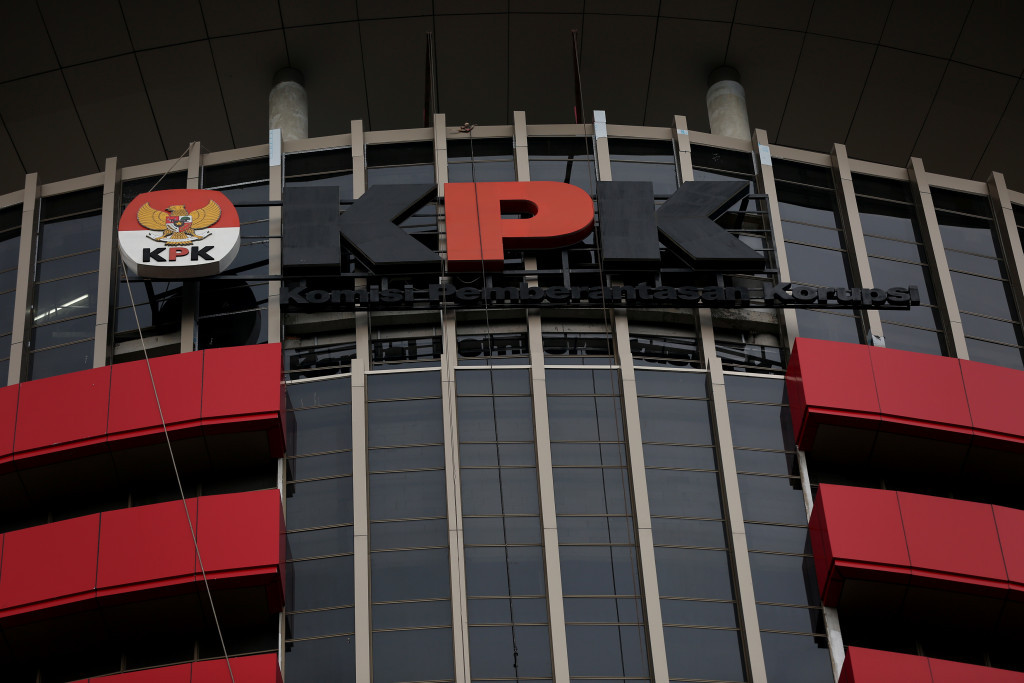Popular Reads
Top Results
Can't find what you're looking for?
View all search resultsPopular Reads
Top Results
Can't find what you're looking for?
View all search resultsBad apples in KPK race
Graft watchdogs have slammed the selection committee for allowing a number of police generals with “questionable” track records to advance in the selection process.
Change text size
Gift Premium Articles
to Anyone
E
very citizen should have the right to compete for top posts at the Corruption Eradication Commission (KPK), including members of the police force.
Despite past conflicts between the KPK and the police, which are respectively known as cicak (gecko) and buaya (alligator) when they square off, several former police officers — some of whom had led the KPK — while others are seconded to current KPK investigators, have played a major role in the war against corruption.
However, a statement by Insp. Gen. Dharma Pongrekun, one of the police generals participating in the ongoing selection process for KPK leadership, has raised not only eyebrows, but also a red flag. Dharma was apparently irked by the supposedly vitriolic attitude toward applicants who have yet to submit their wealth reports to the KPK. Instead of promising that he would disclose his wealth report, the police general chose to attack the rule.
He told local media: “The wealth report is not relevant to God’s law. Why? Because the concept is atheistic in its nature. The KPK created [this concept] in the first place. Rezeki [sustenance] should not be regulated by the law.”
Submitting a wealth report is obligatory for state officials, as stipulated under the 1999 Good Governance and Freedom from Corruption, Collusion and Nepotism Law and the 2002 KPK Law. Dharma’s argument is at best vague and at worst downright ridiculous. The rule was made to ensure transparency. There is no reason why we should ever revoke it, especially for those who are seeking to lead the KPK.
The gaffe has further put candidates from the police force under scrutiny. Graft watchdogs have slammed the selection committee for allowing a number of police generals with “questionable” track records to advance in the selection process. Among them are South Sumatra Police chief Insp. Gen. Firli and the National Police’s Criminal Investigation Department (Bareskrim) deputy chief, Insp. Gen. Antam Novambar, according to the watchdogs.
Firli faced an ethics breach investigation while serving as KPK deputy head for law enforcement in 2018, while Antam was accused in 2015 of intimidating a KPK official into providing a favorable testimony for then-National Police deputy chief and current spy chief Budi Gunawan, whom the KPK had charged with graft. Firli and Antam denied the accusations.
The KPK race is entering its final stages. The committee announced that 40 candidates, including the problematic ones, had passed psychological tests and would move forward to the next stage. It is now conducting “profile assessments” to pick the top 20 candidates, all of whom will later take part in a public hearing to get the nomination. At least ten candidates will be nominated by the President, who will then submit their names to the House of Representatives for confirmation.
The selection committee has the critically important job of ensuring that no bad apples pass the selection process and that only those with the strongest integrity and independence lead the KPK. No matter what their backgrounds are — be they police officers, lawyers, prosecutors or academics — those traits are nonnegotiable.










